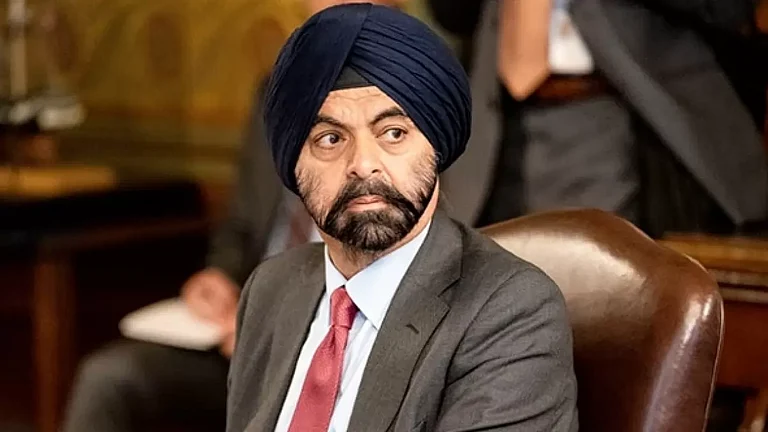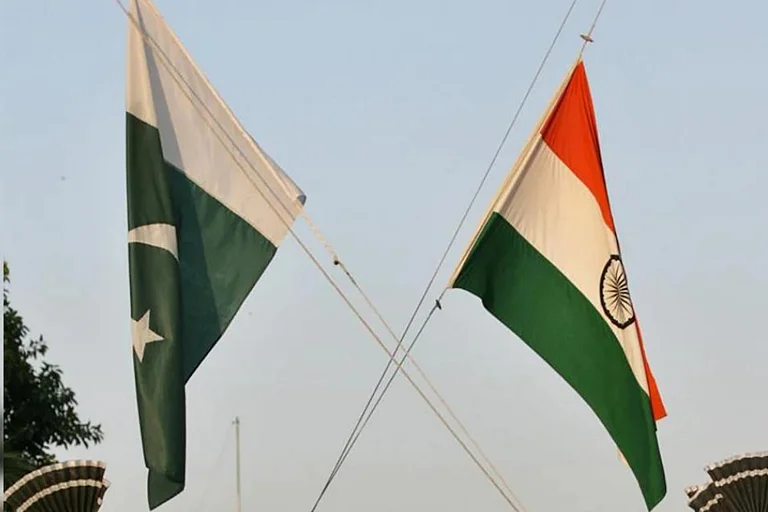Pakistan hails court ruling on Indus Waters Treaty hydropower project norms.
India rejects court jurisdiction, insists on neutral expert under IWT.
Ruling follows Pakistan’s nuclear threats over potential water flow reductions.
Sharif warns India against violating treaty, calling water Pakistan’s lifeline.
Pakistan Pushes to Revive Indus Water Treaty Following International Court’s Decision, India Rejects Order
Despite the order from the international court, India has not the recognized the jurisdiction and has insisted on using the neutral expert mechanism under the treaty.
Pakistan has welcomed the Permanent Court of Arbitration’s decision on the design norms for India’s planned run-of-river hydropower projects over the Chenab, Jhelum and Indus. The neighboring country has claimed that the decision affirms Islamabad’s stance on the Indus Waters Treaty (IWT), the implementation of which was suspended by India after the Pahalgam terror attack.
The court reportedly stated that India must “let flow” the waters of the Western Rivers for Pakistan’s unrestricted use, with exceptions for hydropower generation strictly conforming to treaty requirements, Times of India reported.
According to Pakistan’s foreign office, “The specified exceptions for generation of hydro-electric plants must conform strictly to the requirements laid down in the treaty, rather than to what India might consider an ‘ideal’ or ‘best practices’ approach.”
India Reject's International Court's Decison
Despite the order from the international court, India has not recognised its jurisdiction over the matter. Instead, the country has insisted on using the neutral expert mechanism under the treaty's provisions.
As per sources quoted in the TOI report, India had earlier notified its intent to seek modification of the IWT, following prolonged disputes over the Kishanganga and Ratle projects in Jammu and Kashmir.
India has also maintained that the World Bank’s 2022 decision to simultaneously activate both a neutral expert and the Court of Arbitration — at Pakistan’s insistence — on the same issues was unacceptable, citing “practical and legal challenges” of concurrent proceedings.
Meanwhile, India’s official response to the latest ruling is expected Wednesday. According to officials, the IWT will remain in abeyance until Pakistan takes credible action against cross-border terrorism.
Order Amid Pak's Nuclear War Threats
This decision from the court comes amid the recent nuclear war warnings by Pakistan’s army chief, Gen Asim Munir and combative remarks by senior leaders.
Earlier, the Ministry of External Affairs had described such comments as “nuclear sabre-rattling,” and called it Pakistan’s “stock-in-trade.”
However, Pakistan has reiterated on Monday that it remains committed to implementing the IWT and requested India to resume its “normal functioning.”
Remarks from Pakistan Leaders
Pakistan Army Chief Field Marshal Asim Munir in Tampa, Florida told expatriates that any reduction in water reaching Pakistan would prompt the destruction of Indian infrastructure. He issued a nuclear threat saying, “We are a nuclear nation. If we think we are going down, we’ll take half the world down with us.”
On Tuesday, Pakistani Prime Minister Shehbaz Sharif linked any restriction on flows from India directly to a breach of the IWT. Calling water Pakistan’s lifeline and pledging not to compromise on its treaty rights, he said, “The enemy cannot snatch even a single drop of water from Pakistan. You threatened to stop our water — if you try, Pakistan will teach you a lesson you will never forget,” Geo News reported.
The treaty was signed in 1960 after nine years of negotiations was mediated by the World Bank. The Indus Waters Treaty gives Pakistan control over the western rivers — Indus, Jhelum and Chenab — and India rights over the eastern rivers — Ravi, Beas and Sutlej — with limited provisions for use of each other’s waters.


